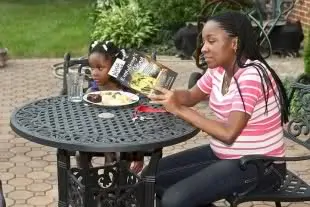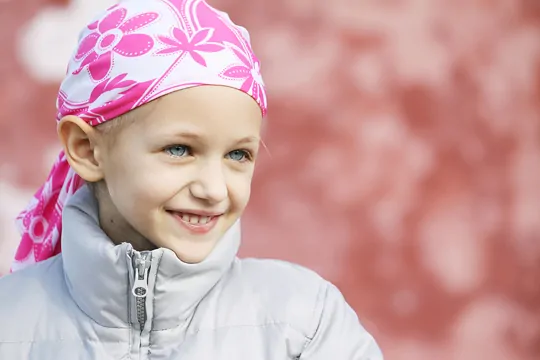This post may contain affiliate links. Read my disclosure policy here.
When Alesia Shute was diagnosed with cancer at the age of 7, her life was redirected as was that of her entire family. She would go on to survive six major surgeries that had never been tested on a child, several minor surgeries and countless hours of pain and months of hospitalization. Alesia had to grow up quickly and adjust to being sickly and different from others.
Alesia shares tips in this article for how a family can remain “healthy” despite dealing with serious illness in a child.
A chronically ill child effects the whole family
When you have a seriously or chronically ill child, it puts great stress on the entire family. The parents feel the strain and worry about the child’s illness, and they may also feel a financial burden as they cope with medical bills, and a sense of guilt as they try to balance taking care of the sick child, while spending time with the child’s other siblings.
As a child who spent years in cancer treatment, I know what it’s like to be the center of that parental focus. Now, as a healthy adult, I interact with many families of sick kids, and I see those patterns of stress continue. From my perspective as a sick kid, and my experiences now, I know how important it is to somehow nurture the entire family, even when one child is extremely ill.
When I was seven years old, I was diagnosed with cancer. At the time, I didn’t really realize the stresses that the family was going through, but I did know there was something wrong because the hospital put us into counseling as a family and it was obvious even as a child that things were not right.
What do you tell the sick child?
My parents just did what they thought was right, but I really didn’t understand what was happening. It’s important to help the sick child know what’s going on. You don’t want to scare them, but you want to include the sick child. At Children’s Hospital of Philadelphia, for example, the hospital staff tells the child everything and they involve you in what’s going on and what they’re going to do. You’re not just lying in bed getting treatment. In a lot of cases they actually have the child role play with dolls to help them understand what is happening.
My brother and sister really weren’t told very much about my illness. They would be told, “your sister is sick; we are going to the hospital,” or “your sister is having an operation,” but they didn’t really know. So 40 years later when they read my memoir, “Everything’s Okay,” which describes my illness and recovery, both of my siblings had this crazy realization: oh, that’s what was going on when you were younger! My older brother tells me now that when he was a child, he resented me because I got too much attention and he didn’t understand why. I was the chosen one.
Siblings should definitely be informed, and even more importantly, parents should be sure to spend time with their other children. I really try to stress that when I speak with families. Why don’t you have one of the relatives go over and hang out at the hospital and you go spend time with your kids instead of dumping the kids off with the neighbors?
Whether you have one child who is sick or has a drug problem—that’s still the same thing. Everybody in the whole family concentrates on that person. You kind of forget that even though the other kids aren’t sick or have drug or alcohol problems, they still have problems and need your attention.
Treat your child as normal as possible

An often overlooked, but absolutely essential way to help a family stay strong during a child’s illness is for the parents to take time out to nurture their marriage. They need to remember that they too have a life. Not that you should be out partying every night, but it’s possible to go for a ride and catch a movie, or take a walk through the mall, or just sit in the house and watch TV and have a glass of wine together. Just don’t forget who you are and why you’re here. I know it’s easier said that done. Too often, that idea of parents as a couple probably gets thrown out of the window first when you have a sick child. Say, for example, that you’ve got a kid in treatment for three or four years, and you take no personal time except to go to work and do laundry and make dinner. It’s the beginning of the end of a marriage, no matter how strong you are.
Being honest, yet reassuring to your sick child and to your other children about the sick one’s illness and treatment, paying attention to your other children and spending time with your spouse may not instantly help your sick child heal, but it will give your family the strength to weather the ups and downs along the way to recovery.
About the author

Photo source: Bigstockphoto.com
Get the care you need through PCH Treatment.










Work at home mom says
What an inspiring story! I recently went through a 5 year battle with Pancreatic Cancer with my father. It was amazing to watch him suffering so badly yet act as if nothing was wrong and never give up. My mantra is “Don’t give up, no matter how bad you think you have it, someone else has it worse.”
Susan says
Alesia, thank you so very much for sharing your story with us here at 5 Minutes for Mom. What an amazing insight you have into such a complex situation. Thank you.